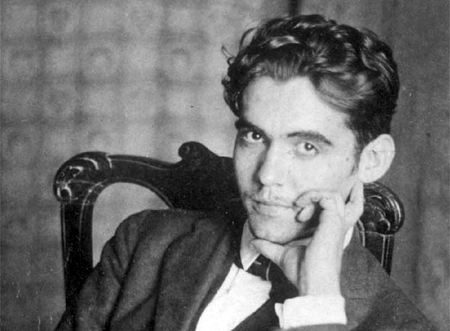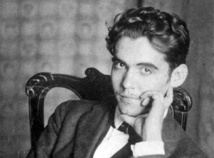Secretary of state for culture, Jose Maria Lassalle, said the goal was to ensure that Spain's most acclaimed 20th century poet remains in the country and is not "scattered".
A source close to talks between the state and the Federico Garcia Lorca Foundation, which owns the archive and is led by the writer's great-niece, said the government feared the foundation could be tempted to sell part of the valuable documents to clean up its debts.
But in an angry response, the foundation said it had been "neither consulted nor informed" of the government's decision to ban the archive's export.
The archive comprises some 19,000 documents, including over 2,000 sheets of original manuscripts, as well as photographs and letters belonging to the poet who was executed at the outset of Spain's 1936-39 civil war.
The government move comes after the foundation refused to transfer the archive from its current location in a Madrid students' residence where he once lived to the newly built Garcia Lorca Centre in the southern city of Granada where the poet was born in 1898.
The centre, built in part with public money and a donation of four million euros ($4.5 million) from Norway under the direction of the foundation, was inaugurated with great fanfare in July 2015 but stands mostly empty as the row continues.
The foundation says disagreements over who will supervise the centre and over what its role in the institution will be are behind its refusal to transfer the archive.
But it is also in conflict with the government and construction firms over millions of euros in debts accumulated by the foundation related to the construction of the centre.
Legal proceedings are underway, and the poet and playwright's great-niece Laura Garcia Lorca last year reported the former manager of the foundation for alleged forgery and embezzlement.
Garcia Lorca was 38 when he was killed by firing squad in August 1936, a month after General Francisco Franco's rebellion against a republican government sparked Spain's civil war.
The poet and playwright, whose works include "Blood Wedding" and "The House of Bernarda Alba", is believed to have been buried in an unmarked grave near Granada.
His poems and plays, which deal with themes such as love, death, passion, cruelty and injustice, are widely studied at universities.
--------------------------------------------------------------------------------------------------------------
A source close to talks between the state and the Federico Garcia Lorca Foundation, which owns the archive and is led by the writer's great-niece, said the government feared the foundation could be tempted to sell part of the valuable documents to clean up its debts.
But in an angry response, the foundation said it had been "neither consulted nor informed" of the government's decision to ban the archive's export.
The archive comprises some 19,000 documents, including over 2,000 sheets of original manuscripts, as well as photographs and letters belonging to the poet who was executed at the outset of Spain's 1936-39 civil war.
The government move comes after the foundation refused to transfer the archive from its current location in a Madrid students' residence where he once lived to the newly built Garcia Lorca Centre in the southern city of Granada where the poet was born in 1898.
The centre, built in part with public money and a donation of four million euros ($4.5 million) from Norway under the direction of the foundation, was inaugurated with great fanfare in July 2015 but stands mostly empty as the row continues.
The foundation says disagreements over who will supervise the centre and over what its role in the institution will be are behind its refusal to transfer the archive.
But it is also in conflict with the government and construction firms over millions of euros in debts accumulated by the foundation related to the construction of the centre.
Legal proceedings are underway, and the poet and playwright's great-niece Laura Garcia Lorca last year reported the former manager of the foundation for alleged forgery and embezzlement.
Garcia Lorca was 38 when he was killed by firing squad in August 1936, a month after General Francisco Franco's rebellion against a republican government sparked Spain's civil war.
The poet and playwright, whose works include "Blood Wedding" and "The House of Bernarda Alba", is believed to have been buried in an unmarked grave near Granada.
His poems and plays, which deal with themes such as love, death, passion, cruelty and injustice, are widely studied at universities.
--------------------------------------------------------------------------------------------------------------









 Home
Home Politics
Politics











